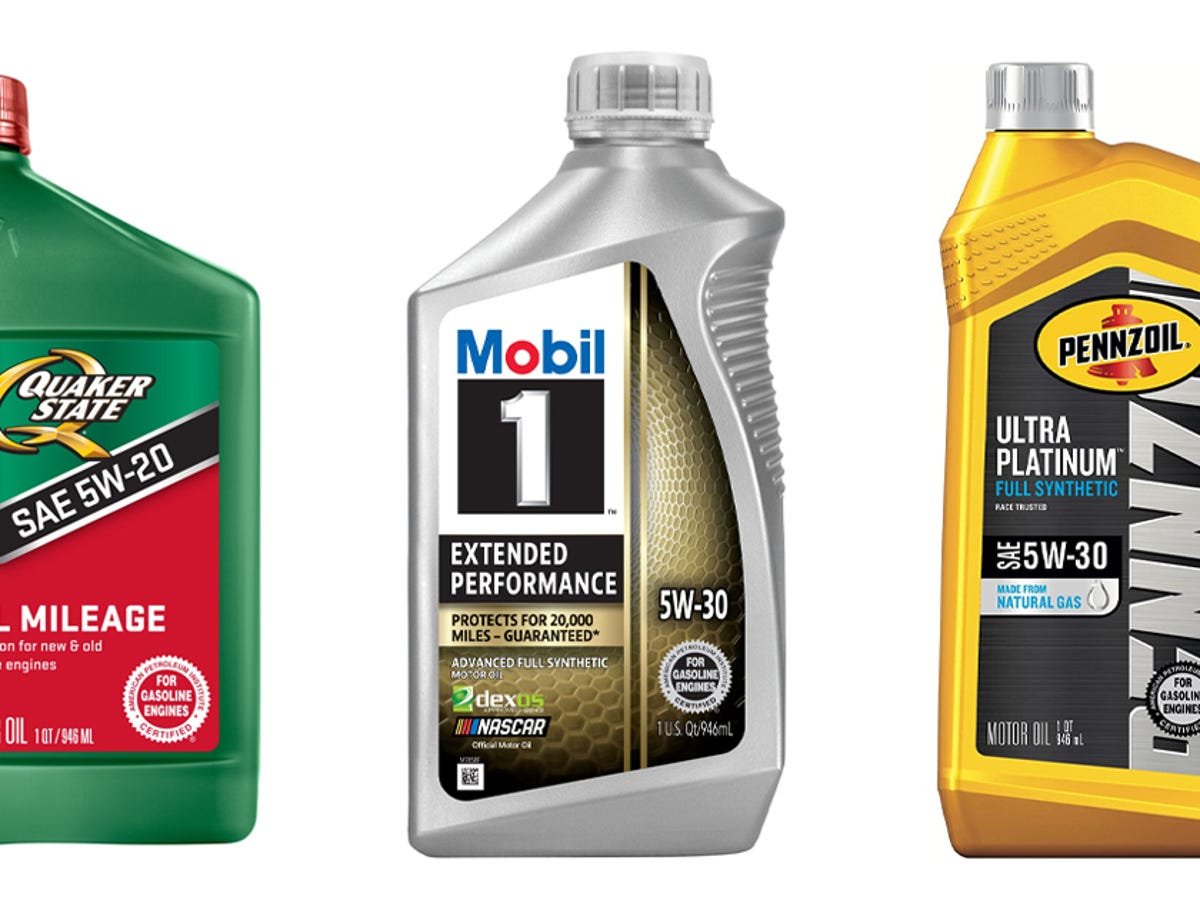The best oil for a natural gas engine is Mobil Delvac™ CNG/LNG, offering engine protection and extended oil drain intervals. Specifically formulated for spark-ignited, CNG- and LNG-fueled engines, it provides superior performance in hot-running conditions.
This oil stands out for its resistance to oxidation and nitration, ensuring optimal functionality of natural gas engines. The key to maintaining the longevity and efficiency of your natural gas engine lies in using the right oil, such as Mobil Delvac™ CNG/LNG, which is designed to meet the specific demands of such engines.
By choosing the appropriate oil, you can enhance the performance and durability of your natural gas engine, ensuring smooth operation and longevity.

Credit: www.cnet.com
Introduction To Natural Gas Engine Oil
Discovering the ideal oil for a natural gas engine is crucial for optimal performance. Gulf Multi CNG oil stands out with superior oxidation and nitration resistance, ensuring efficiency in high-temperature CNG engines. AMSOIL Synthetic Stationary Natural Gas Engine Oil is another top choice, offering enhanced wear protection and extended oil drain intervals.
When it comes to the optimal performance of natural gas engines, selecting the right oil is crucial. Natural gas engines operate differently from traditional gasoline engines, requiring specific lubrication to ensure efficiency and longevity.
The Rise Of Natural Gas Engines
Natural gas engines are gaining popularity due to their cleaner emissions and cost-effectiveness. As more industries and vehicles transition to natural gas, the demand for suitable engine oils is increasing.
Importance Of Selecting The Right Oil
Choosing the correct oil for a natural gas engine is vital for maintaining engine health and performance. The right oil can enhance fuel efficiency, reduce emissions, and prolong the engine’s lifespan.
Characteristics Of Ideal Engine Oil For Natural Gas Engines
To ensure optimal performance of a natural gas engine, it is important to choose the right engine oil. The ideal oil should have high levels of calcium to prevent deposits, low levels of oxidation to increase longevity, and seal conditioners to prevent leaks.
The Pennzoil Platinum Natural Gas is a great option, with an effective additive package for natural gas engines. Other recommended oils include Mobil Delvac CNG/LNG and AMSOIL Synthetic Stationary Natural Gas Engine Oil.
Viscosity And Its Impact On Performance
The viscosity of engine oil significantly affects the performance of natural gas engines. Proper viscosity ensures efficient lubrication and optimal protection for engine components. Inadequate viscosity can lead to increased friction, wear, and reduced fuel efficiency.
Oxidation And Nitration Resistance
Engine oils for natural gas engines must exhibit high resistance to oxidation and nitration. These characteristics are crucial for preventing the formation of harmful deposits and maintaining the oil’s stability over extended drain intervals.
Synthetic Vs. Conventional Oils
Synthetic and conventional oils are the two primary options for natural gas engines, each with its own set of advantages and characteristics. Understanding the differences between these two types of oils can help you make an informed decision when choosing the best oil for your natural gas engine.
Benefits Of Synthetic Oils
Synthetic oils are engineered to offer superior performance and protection for natural gas engines. Some of the key benefits of synthetic oils include:
- Enhanced Lubrication: Synthetic oils provide better lubrication, reducing friction and wear on engine components.
- Improved Stability: These oils maintain their viscosity and stability over a wide range of temperatures, ensuring consistent performance in varying operating conditions.
- Extended Oil Change Intervals: Synthetic oils often allow for longer intervals between oil changes, reducing maintenance requirements.
- Resistance to Deposits: They are less prone to forming deposits and sludge, keeping the engine clean and functioning optimally.
Comparative Analysis With Conventional Oils
When compared to conventional oils, synthetic oils demonstrate several advantages that make them a preferred choice for natural gas engines. Here’s a comparative analysis of synthetic oils versus conventional oils:
| Characteristic | Synthetic Oils | Conventional Oils |
|---|---|---|
| Lubrication | Offers superior lubrication, reducing friction and wear. | Provides effective lubrication but may not offer the same level of protection as synthetic oils. |
| Stability | Maintains stability and viscosity across a wide temperature range. | May experience viscosity breakdown in extreme temperatures, affecting performance. |
| Oil Change Intervals | Allows for extended oil change intervals, reducing maintenance frequency. | Usually requires more frequent oil changes compared to synthetic oils. |
| Deposit Formation | Less prone to forming deposits and sludge, promoting a cleaner engine. | May be more susceptible to deposit formation, potentially impacting engine cleanliness. |
Top Recommended Oils For Natural Gas Engines
When it comes to choosing the best oil for a natural gas engine, it’s essential to consider the specific needs of these engines to ensure optimal performance and longevity. In this guide, we’ll explore the top recommended oils for natural gas engines, including leading brands and their products, as well as expert and consumer reviews.
Leading Brands And Their Products
When it comes to natural gas engine oils, several leading brands offer products specifically designed to meet the demands of these engines. One such brand is Mobil, which offers the Mobil Delvac™ CNG/LNG oil, providing spark-ignited, CNG- and LNG-fueled engines with engine protection and extended oil drain intervals. Another notable brand is AMSOIL, known for its Synthetic Stationary Natural Gas Engine Oil, recommended for natural gas engines.
Expert And Consumer Reviews
Expert and consumer reviews play a crucial role in determining the best oil for natural gas engines. Gulf Multi CNG, for example, has garnered positive feedback for its formulation that offers better resistance to oxidation and nitration, making it suitable for hot-running CNG engines. Additionally, oils made using GTL (Gas-to-Liquid) technology have been praised for providing better wear protection, extreme-temperature performance, and longevity than conventional oils.
Technological Advancements In Oil Production
The advancement in oil production technology has led to the development of innovative methods for creating high-quality engine oils. These technological advancements have significantly improved the performance and longevity of natural gas engine oils, ensuring enhanced protection and efficiency.
Gas-to-liquid (gtl) Technology
One of the most significant advancements in oil production is the implementation of gas-to-liquid (GTL) technology. This revolutionary process involves converting natural gas into high-quality base oils through a sophisticated synthesis process. The result is a purer and more refined base oil, free from the impurities and contaminants commonly found in traditional crude oil-based products.
Impact On Engine Oil Quality And Performance
The utilization of GTL technology has had a profound impact on the quality and performance of engine oils. The absence of impurities in oils produced through GTL technology has contributed to enhanced wear protection, improved resistance to extreme temperatures, and prolonged oil longevity. As a result, natural gas engine oils manufactured using GTL technology offer superior performance and reliability compared to conventional oils.
Credit: www.quora.com
Performance Testing And Standards
When it comes to selecting the best oil for a natural gas engine, performance testing and standards play a crucial role in ensuring optimal engine protection and efficiency. Engine oils for natural gas engines are subjected to rigorous testing to evaluate their performance under specific conditions, and they must meet industry standards to ensure compatibility and effectiveness.
Key Tests For Evaluating Oil Performance
Performance testing for natural gas engine oils involves a series of key tests to assess their ability to provide adequate lubrication and protection. These tests include:
- Calcium Levels
- Oxidation
- Seal Conditioners
- General Motors Gmod Test
- Additive Package of that Pennzoil Platinum Natural Gas
Standards For Natural Gas Engine Oils
Standards are essential to ensure that natural gas engine oils meet the required specifications for performance and compatibility. The following standards are commonly used to evaluate natural gas engine oils:
| Standard | Description |
|---|---|
| API CK-4 | Designed for use in high-speed, four-stroke engines using natural gas as a fuel. |
| ACEA E9-12 | Specifically formulated for heavy-duty engines operating on natural gas. |
| Cummins CES 20085 | Meets the requirements for natural gas engines in Cummins equipment. |
User Insights And Case Studies
Discover the ideal oil for your natural gas engine with valuable user insights and case studies. Uncover the top choices for optimal engine performance and longevity.
Real-world Performance Feedback
Users across various industries have provided valuable insights into the performance of natural gas engines when using different types of oils. Their real-world experiences offer practical guidance for selecting the best oil for natural gas engines.
Case Studies Of Natural Gas Engines Using Specific Oils
Case studies have demonstrated the impact of specific oils on the performance and longevity of natural gas engines. These studies provide concrete evidence of the benefits of using the right oil formulation for natural gas engines, helping users make informed decisions based on empirical data.

Credit: www.facebook.com
Future Trends And Developments
When considering the future of oil for natural gas engines, emerging technologies in oil production and predictions for future oil formulations play a crucial role.
Emerging Technologies In Oil Production
With advancements in technology, the oil industry is constantly evolving to meet the demands of modern engines. These emerging technologies focus on enhancing oil quality and performance.
Predictions For Future Oil Formulations
Future oil formulations are expected to prioritize improved efficiency and environmental sustainability. Innovations will likely focus on creating oils that offer enhanced engine protection and longer oil drain intervals.
Frequently Asked Questions
Which Oil Is Best For A Cng Car?
The best oil for a CNG car is Gulf Multi CNG, designed to withstand oxidation and nitration in hot-running CNG engines.
Is Motor Oil Made From Natural Gas Any Good?
Yes, motor oil made from natural gas is good. It provides better wear protection, extreme-temperature performance, and longevity than conventional oils due to being free from contaminants. Synthetic oils made from natural gas are also a better choice for small engines.
Choose Mobil Delvac™ CNG/LNG or AMSOIL Synthetic Vehicular Natural Gas Engine Oil SAE for better engine protection and extended oil drain intervals.
Is Royal Purple Better Than Mobil 1?
Royal Purple and Mobil 1 are both top synthetic oils, each with unique benefits. Choosing between them depends on individual engine needs.
Is Amsoil Better Than Mobil 1?
AMSOIL and Mobil 1 are both top-quality synthetic oils, but AMSOIL typically offers better performance and longevity.
Conclusion
Choosing the best oil for a natural gas engine is crucial to ensure its longevity and performance. After reviewing various options and considering factors such as oxidation, nitration, seal conditioners, and additive packages, it’s clear that Mobil Delvac™ CNG/LNG and AMSOIL Synthetic Stationary Natural Gas Engine Oil are some of the top choices in the market.
While natural gas motor oil made using GTL technology offers benefits such as better wear protection and extreme-temperature performance, synthetic oils are always a better choice for small engines. Overall, the best oil for a natural gas engine depends on various factors such as the engine type, operating conditions, and manufacturer’s recommendations.

